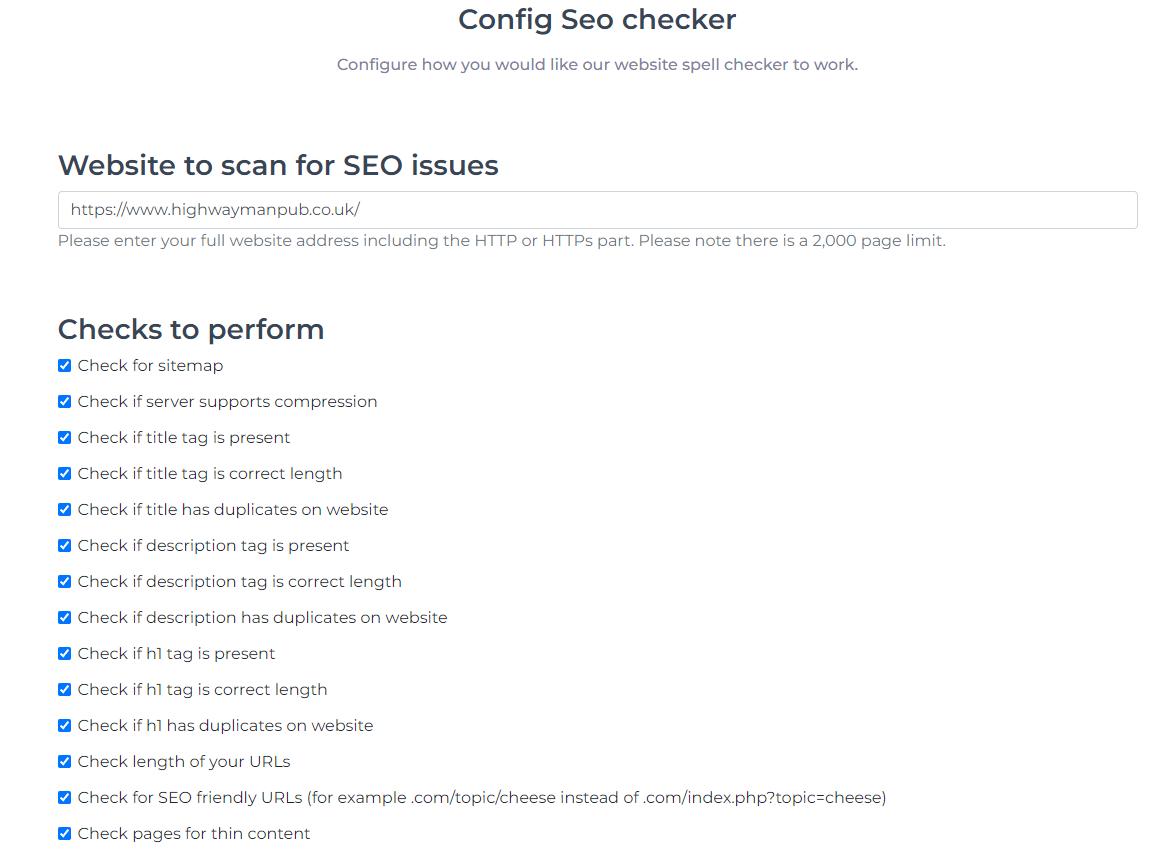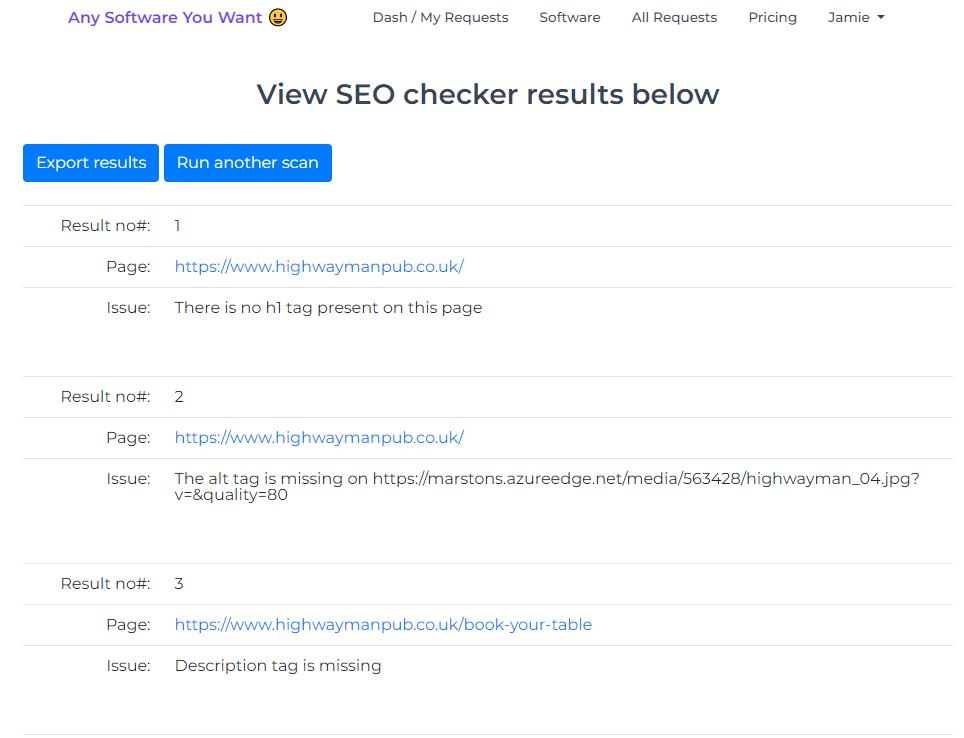Free SEO Checker
Introducing SEO Checker: Your Ultimate SEO Optimization Companion
Boost your website's visibility and skyrocket your search engine rankings with SEO Checker, the cutting-edge web-based tool designed to meticulously analyze every page of your website and uncover potential SEO issues. With its comprehensive scanning capabilities, SEO Checker ensures that your website adheres to industry best practices, allowing you to optimize your online presence and attract more organic traffic than ever before.
Key Features:
Exhaustive SEO Issue Detection: SEO Checker employs state-of-the-art algorithms to scan every page of your website and identify a wide range of critical SEO issues. From basic concerns like the absence of a sitemap or blocked search engines to more advanced matters like thin content and improper URL structures, SEO Checker leaves no stone unturned in its pursuit of optimization.
URL Analysis: Our tool meticulously examines the length and structure of your URLs to ensure they are optimized for search engines. Say goodbye to lengthy, convoluted URLs that hinder your website's crawlability. SEO Checker helps you create SEO-friendly URLs that improve user experience and attract higher search rankings.
Content Evaluation: Thin content can be detrimental to your website's performance. SEO Checker examines each page to determine if it lacks substantial content, providing you with valuable insights to enhance your website's overall quality and relevance.
Server Compatibility: SEO Checker goes the extra mile by checking if your server supports compression, a crucial factor for efficient website loading speeds. By identifying potential issues and offering recommendations, our tool helps you optimize your server configuration for enhanced user experience and search engine rankings.
Meta Tag Validation: SEO Checker scrutinizes your website's meta tags, including title tags, description tags, and H1 tags, to ensure they are correctly implemented and free from duplication. Properly optimized meta tags improve search engine visibility and attract higher click-through rates, enabling you to maximize your website's potential.
Actionable Recommendations: SEO Checker not only identifies SEO issues but also provides actionable recommendations to address them. With clear and concise instructions, you'll be equipped with the knowledge needed to make informed decisions and implement effective SEO strategies.
Why Choose SEO Checker?
User-Friendly Interface: SEO Checker boasts an intuitive and user-friendly interface, making it accessible for users of all skill levels. No technical expertise is required to take advantage of its powerful features.
Comprehensive Reporting: Our tool generates comprehensive reports that outline all identified SEO issues, making it easy for you to track progress and prioritize optimization efforts.
Time-Saving Efficiency: Instead of manually checking every page of your website for SEO issues, SEO Checker automates the process, saving you valuable time and effort. Spend more time implementing improvements and less time on tedious tasks.
Ongoing Monitoring: SEO optimization is an ongoing process. SEO Checker allows you to schedule regular scans, ensuring that your website remains optimized and up to date with the ever-evolving SEO landscape.
Don't let SEO issues hold your website back from its full potential. Try SEO Checker today and unlock a world of possibilities for improved search rankings, increased organic traffic, and enhanced user engagement. Optimize your website like a pro and leave your competitors in the dust!
SEO Checker Demo Video
What does SEO Checker look like?

